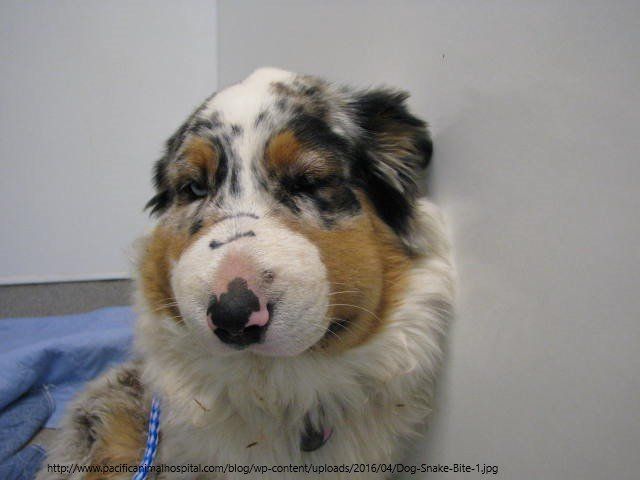Rattlesnake Awareness

Summer is upon us, and last month, I wrote about the risks of heatstroke in pets.
Another common danger during the hot, dry summer weather is the increase in rattlesnakes in our area and snakebites in our pets. Rattlesnakes can be common around Round Rock, and I have had several clients who live nearby and have found rattlesnakes in their garage or backyards. Rattlesnake bites are always a veterinary medical emergency and the faster the bite is recognized and veterinary treatment is started, the more effective the treatment is.
Most bites occur to dogs on the face or extremities. Rattlesnake bites cause severe swelling, bruising, bleeding, and pain at the bite site. The rattlesnake toxin causes tissue damage, disrupts normal blood clotting mechanisms, and damages the blood vessels, leading to uncontrolled bleeding and possibly shock and death. Your veterinarian can run tests to confirm if venom had been injected by the bite. Approximately 20-25% of bites are dry, which means no venom had been injected. 30% of bites are mild with local pain and swelling, but no systemic symptoms, and 40% of bites are severe, with about 5% of these being fatal.
Rattlesnake bites are best treated with antivenin to neutralize the effects of the toxins in the snake's venom. Antivenin is expensive, and some pets with severe bites may need several vials to be effective. Pets are also treated with IV fluids, pain medications, and possibly antibiotics to help treat secondary infections from the bite.
We carry a Rattlesnake Vaccine for dogs that are at high risk of getting bit by a rattlesnake. The rattlesnake vaccine is a series of 2 boosters 3-4 weeks apart, and then it is given every 6 months. Anecdotally, vaccinated dogs may have less severe symptoms and a better survival rate, but there is minimal to no controlled data confirming the vaccine's efficacy. Every snakebite should be treated as an emergency, even in a dog vaccinated with the rattlesnake vaccine. If your pet is bitten by a rattlesnake, please seek veterinary attention immediately.

